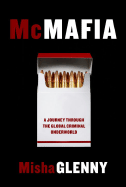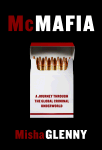

Glenny argues that when a country undergoes radical change and public trust in institutions is weak, as was the case in the Eastern bloc countries, among others, organized crime with its genius for corruption can exploit the situation to redirect resources for criminal purposes. In his long reporting career, he has seen more than enough examples of that, including widespread trafficking in drugs, arms, migrant labor and women kidnapped, imprisoned and forced to be sex workers around the world. Counterfeiting, car-jacking and money laundering are also thriving operations among the wily, opportunistic traders he interviewed. The problem is not a small one: he estimates that up to 20% of global income is generated in this shadow economy.
Glenny relates harrowing tales of damage wreaked in the absence of concerted efforts to control these criminal activities. Whether in Bulgaria, the Balkans, Russia, Transnistria, Ukraine, Moldavia, Israel, the United Arab Emirates, India, Nigeria, South Africa, Colombia or Brazil, the misery, violence and the escalating wealth and power of gangsters he reports on are overwhelming. Confronted by this array of criminal activity, some readers may wish that Glenny had limited his scope; but, face it, we need to know every horrifying detail of what goes on in "free" (that is, uncontrolled) markets in order to comprehend the threat of this disturbing trend.
Glenny writes, "In the absence of the rule of law, corruption renders the distinctions between legitimate and criminal businesses opaque and sometimes completely obscure." I predict that every reader will finish this book knowing that is an understatement.--John McFarland

